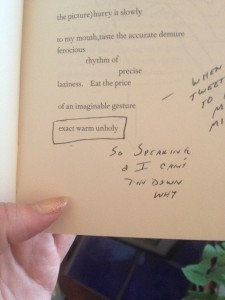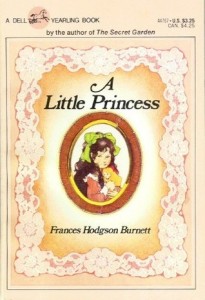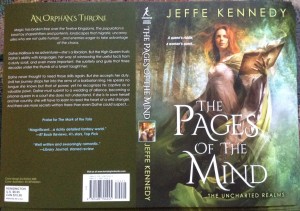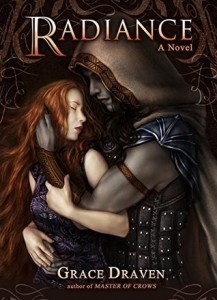
So, this week’s topic over at Word Whores is: It’s dead, Jim – how to know when a project isn’t working vs when its fixable.
I’m telling a couple of stories about knowing when to give up.
RITA ® Award-Winning Author of Fantasy Romance

So, this week’s topic over at Word Whores is: It’s dead, Jim – how to know when a project isn’t working vs when its fixable.
I’m telling a couple of stories about knowing when to give up.
 I’m over at the Contemporary Romance Cafe, giving some writing advice, and talking about why we do and don’t write in books we’re reading.
I’m over at the Contemporary Romance Cafe, giving some writing advice, and talking about why we do and don’t write in books we’re reading.
 I’m over at Word Whores, confessing (ulp!) five major goals for 2016. At the end of the year, I’ll revisit them and see how I did. Go, Future Jeffe!
I’m over at Word Whores, confessing (ulp!) five major goals for 2016. At the end of the year, I’ll revisit them and see how I did. Go, Future Jeffe!
 This is our bobcat visitor from yesterday. Gorgeous animal. Wish I’d gotten a clearer one of her face, but the best are of her prowling about.
This is our bobcat visitor from yesterday. Gorgeous animal. Wish I’d gotten a clearer one of her face, but the best are of her prowling about. 

 In other news, THE TALON OF THE HAWK is showing up on a bunch of Best of 2015 lists, like at RT Book Reviews, and Happy Tails and Trails (Best Cover, Blogger’s Choice and Top 10). At Grave Tells, the book is up for Best Fantasy Romance of 2015, so if you have that clicky-finger feeling, you can vote here.
In other news, THE TALON OF THE HAWK is showing up on a bunch of Best of 2015 lists, like at RT Book Reviews, and Happy Tails and Trails (Best Cover, Blogger’s Choice and Top 10). At Grave Tells, the book is up for Best Fantasy Romance of 2015, so if you have that clicky-finger feeling, you can vote here.
Hope the holiday season is treating you all well!
 I’m over at Word Whores, talking about what childhood favorite book I’d give to a kid today – and who I’m giving this one to!
I’m over at Word Whores, talking about what childhood favorite book I’d give to a kid today – and who I’m giving this one to!
 I know I haven’t posted here as much, but I’m immersed in writing Jepp’s book, THE EDGE OF THE BLADE. So much Dasnarian Empire … I won’t say “goodness, but wow – this is an interesting story to write!
I know I haven’t posted here as much, but I’m immersed in writing Jepp’s book, THE EDGE OF THE BLADE. So much Dasnarian Empire … I won’t say “goodness, but wow – this is an interesting story to write!
I’m also finishing copy edits on THE PAGES OF THE MIND. (Aren’t the cover flats pretty?? Just wait until you see this green in real life!) At rate, I was reviewing this scene snippet and it made me laugh. That book is Dafne’s and so from her point of view, but Jepp always cracks me up, so I thought I’d share. 🙂
***
Jepp didn’t reply to that, just watched, then cursed under her breath. “Put your things away. Have your big dagger in your hand. Be ready to run. Or jump overboard. Which means lose the cloak.”
I heard it then, as I hastened to do as she instructed, a beast roaring over the screams of men, along with shouting in a jumble of Dasnarian. A large bird, white, with a long, swooping neck, spiraled over me and landed on the deck, flashing into Zynda, who ranged herself next to Jepp, also in a fighting stance. “Trouble,” she said.
“What is that thing?” Jepp asked.
“I’ve never seen anything like it, but it just swallowed a man whole.”
Normally I’d be perfectly happy to cower behind them—and had been thus far—but curiosity got the better of me and I edged around Zynda to peek down the barge at what they watched. A violet haze rippled through the sky and water, as if emanating from some glowing thing. Then a man flew through the air, landing in the water with a splash. He began to swim for the barge, but a violet tentacle rose from the water, wrapped around his waist, and dragged him under.
“On second thought,” Jepp said, “don’t jump overboard.”
***
Happy weekend, everyone!
 I’m over at Word Whores today, discussing my picks for the most memorable books I read in 2015, along with an honorable mention.
I’m over at Word Whores today, discussing my picks for the most memorable books I read in 2015, along with an honorable mention.
 Look at that! Yes, that’s my weekly wordcount graph for this last week, where I blew my previous record out of the water. I’m just ever so pleased with myself.
Look at that! Yes, that’s my weekly wordcount graph for this last week, where I blew my previous record out of the water. I’m just ever so pleased with myself.
I mentioned earlier this week that I wanted to re-jigger my writing schedule to maximize my productivity, now that I’m writing full time. I figured I should be able to up my output, but so far hadn’t done so by as much as I’d hoped. In the past, I worked pretty intensely for several hours, usually getting 2,000 to 3,000 words before switching over to the day job. (Which I did from home, so no commute or like considerations.) I thought I should be able to get up to 5,000 words and still have more day to do Other Things (like reading, house projects, etc.).
But I wasn’t getting there. Even with the Jeffe Training for a Marathon Method (TM) of increasing wordcount production, I was punking out well before 5K. As in, I got tired and couldn’t focus enough to keep going.
So I looked at ways to change things up.
First, I stopped the video watching, as I discussed before.
Then I did the major trick I always resort to when I’m not getting the focus and flow I need. I often fall into the pattern of turning on my computer, opening email and my browser, then checking all the social media and various messages. This often takes my brain in the wrong direction. Now that I’ve been waking up naturally and not setting my alarm, I’ve been indulging in my favorite waking up ritual, which is to lie there for a good half hour before getting up. I rarely sleep later than 7 and most of the time I’m out of bed by 6. But I start waking up before that and love to lie there in a lovely relaxed alpha-wave state, thinking about the book I’m writing, something I call the Dreamthink. If I pour a bunch of other information into my head in between that Dreamthink time and actually writing, I lose a lot.
So, first step was to write first. That would prime the pump and get things going. My first 500 words of the day are always the slowest. I speed up as I go. However, I didn’t want to go too long without checking for messages from overnight, so I decided I’d try for 500 words before anything else, then break to check the rest.
Then something entirely new occurred to me.
I’d been in a pattern of writing intensely for condensed periods of time, but why keep doing that if I didn’t need to? A lot of writers use the #1K1Hr hashtag and benchmark – writing 1,000 words or for 1 hour, whichever it came out to. Instead, I tried a schedule of 30 minutes and 500 words, with breaks in between.
And boy howdy, how it worked!
This is the schedule I set up:
|
get up/workout |
6:00 AM |
7:30 AM |
1:30 |
||
|
write |
7:30 AM |
8:15 AM |
0:45 |
500 |
|
|
check email/facebook/twitter/blogs/chat |
8:15 AM |
8:45 AM |
0:30 |
||
|
write |
8:45 AM |
9:15 AM |
0:30 |
500 |
1,000 |
|
check email/facebook/twitter/blogs/chat |
9:15 AM |
9:30 AM |
0:15 |
||
|
write |
9:30 AM |
10:00 AM |
0:30 |
500 |
1,500 |
|
check email/facebook/twitter/blogs/chat |
10:00 AM |
10:15 AM |
0:15 |
||
|
write |
10:15 AM |
10:45 AM |
0:30 |
500 |
2,000 |
|
check email/facebook/twitter/blogs/chat |
10:45 AM |
11:00 AM |
0:15 |
||
|
write |
11:00 AM |
11:30 AM |
0:30 |
500 |
2,500 |
|
check email/facebook/twitter/blogs/chat |
11:30 AM |
11:45 AM |
0:15 |
||
|
write |
11:45 AM |
12:15 PM |
0:30 |
500 |
3,000 |
|
lunch/read |
12:15 PM |
1:15 PM |
1:00 |
||
|
check email/facebook/twitter/blogs/chat |
1:15 PM |
1:30 PM |
0:15 |
||
|
write |
1:30 PM |
2:00 PM |
0:30 |
500 |
3,500 |
|
check email/facebook/twitter/blogs/chat |
2:00 PM |
2:15 PM |
0:15 |
||
|
write |
2:15 PM |
2:45 PM |
0:30 |
500 |
4,000 |
|
check email/facebook/twitter/blogs/chat |
2:45 PM |
3:00 PM |
0:15 |
||
|
write |
3:00 PM |
3:30 PM |
0:30 |
500 |
4,500 |
|
check email/facebook/twitter/blogs/chat |
3:30 PM |
3:45 PM |
0:15 |
||
|
write |
3:45 PM |
4:15 PM |
0:30 |
500 |
5,000 |
|
reading/gifts/decs |
4:15 PM |
5:30 PM |
1:15 |
||
|
finances/business/blog post |
5:30 PM |
6:00 PM |
0:30 |
||
|
yoga/weights |
6:00 PM |
6:30 PM |
0:30 |
||
|
movie |
6:30 PM |
9:00 PM |
2:30 |
||
|
read |
9:00 PM |
10:00 PM |
1:00 |
I was going to post that as a jpg image, so it would be prettier and more compact, but then I heard Sassy Outwater in my head, chastising me about accessibility, so…
At any rate, the first week was a runaway success! I went from 14K on THE EDGE OF THE BLADE to 35K. I’m ever so pleased with how I felt, too. I tend to be a concentrated, focused worker, so the idea of taking regular breaks is new to me, but it worked out great for my endurance! I set up all the times as formulas, so my daily schedule hinges around when I do get up (which I wanted to keep organic) and can be adjusted if stuff comes up. If I get ahead of schedule with especially good writing runs, I finish earlier in the afternoon.
We’ll see how week two goes.